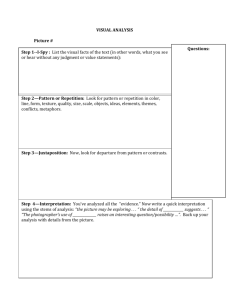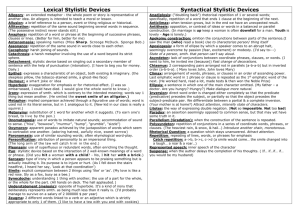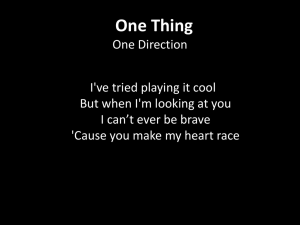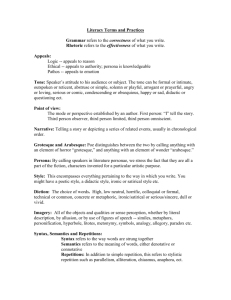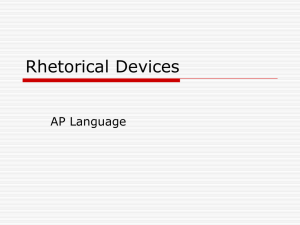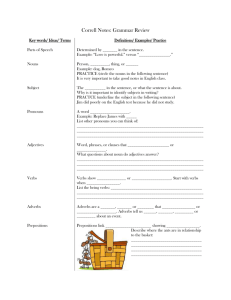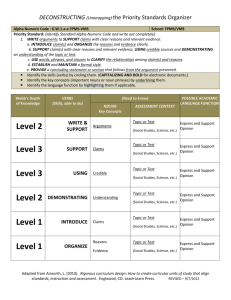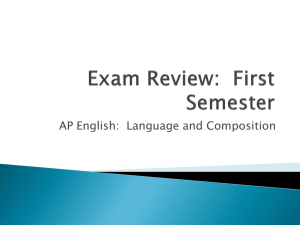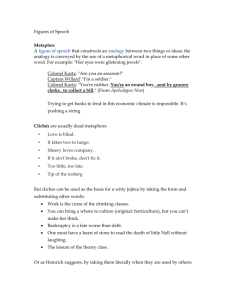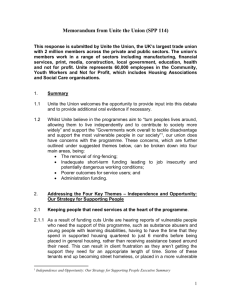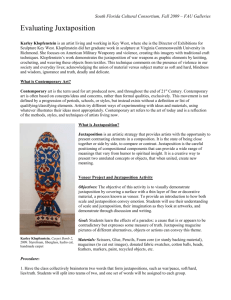Glossary of Selected Tropes and schemes
advertisement
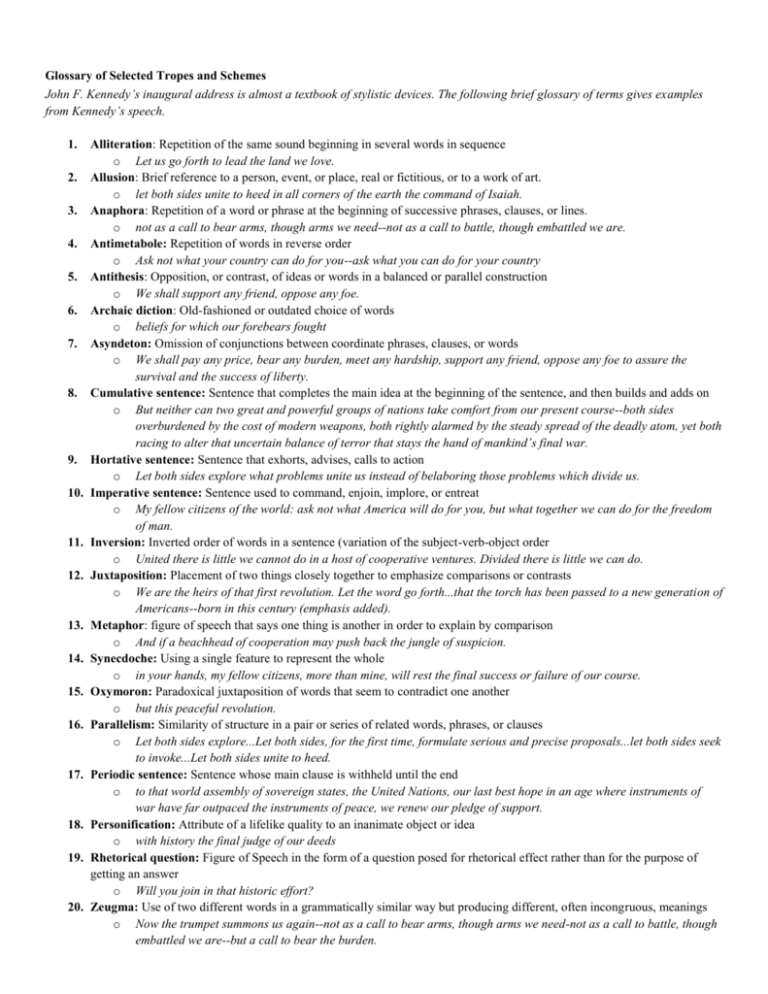
Glossary of Selected Tropes and Schemes John F. Kennedy’s inaugural address is almost a textbook of stylistic devices. The following brief glossary of terms gives examples from Kennedy’s speech. 1. 2. 3. 4. 5. 6. 7. 8. 9. 10. 11. 12. 13. 14. 15. 16. 17. 18. 19. 20. Alliteration: Repetition of the same sound beginning in several words in sequence o Let us go forth to lead the land we love. Allusion: Brief reference to a person, event, or place, real or fictitious, or to a work of art. o let both sides unite to heed in all corners of the earth the command of Isaiah. Anaphora: Repetition of a word or phrase at the beginning of successive phrases, clauses, or lines. o not as a call to bear arms, though arms we need--not as a call to battle, though embattled we are. Antimetabole: Repetition of words in reverse order o Ask not what your country can do for you--ask what you can do for your country Antithesis: Opposition, or contrast, of ideas or words in a balanced or parallel construction o We shall support any friend, oppose any foe. Archaic diction: Old-fashioned or outdated choice of words o beliefs for which our forebears fought Asyndeton: Omission of conjunctions between coordinate phrases, clauses, or words o We shall pay any price, bear any burden, meet any hardship, support any friend, oppose any foe to assure the survival and the success of liberty. Cumulative sentence: Sentence that completes the main idea at the beginning of the sentence, and then builds and adds on o But neither can two great and powerful groups of nations take comfort from our present course--both sides overburdened by the cost of modern weapons, both rightly alarmed by the steady spread of the deadly atom, yet both racing to alter that uncertain balance of terror that stays the hand of mankind’s final war. Hortative sentence: Sentence that exhorts, advises, calls to action o Let both sides explore what problems unite us instead of belaboring those problems which divide us. Imperative sentence: Sentence used to command, enjoin, implore, or entreat o My fellow citizens of the world: ask not what America will do for you, but what together we can do for the freedom of man. Inversion: Inverted order of words in a sentence (variation of the subject-verb-object order o United there is little we cannot do in a host of cooperative ventures. Divided there is little we can do. Juxtaposition: Placement of two things closely together to emphasize comparisons or contrasts o We are the heirs of that first revolution. Let the word go forth...that the torch has been passed to a new generation of Americans--born in this century (emphasis added). Metaphor: figure of speech that says one thing is another in order to explain by comparison o And if a beachhead of cooperation may push back the jungle of suspicion. Synecdoche: Using a single feature to represent the whole o in your hands, my fellow citizens, more than mine, will rest the final success or failure of our course. Oxymoron: Paradoxical juxtaposition of words that seem to contradict one another o but this peaceful revolution. Parallelism: Similarity of structure in a pair or series of related words, phrases, or clauses o Let both sides explore...Let both sides, for the first time, formulate serious and precise proposals...let both sides seek to invoke...Let both sides unite to heed. Periodic sentence: Sentence whose main clause is withheld until the end o to that world assembly of sovereign states, the United Nations, our last best hope in an age where instruments of war have far outpaced the instruments of peace, we renew our pledge of support. Personification: Attribute of a lifelike quality to an inanimate object or idea o with history the final judge of our deeds Rhetorical question: Figure of Speech in the form of a question posed for rhetorical effect rather than for the purpose of getting an answer o Will you join in that historic effort? Zeugma: Use of two different words in a grammatically similar way but producing different, often incongruous, meanings o Now the trumpet summons us again--not as a call to bear arms, though arms we need-not as a call to battle, though embattled we are--but a call to bear the burden.
